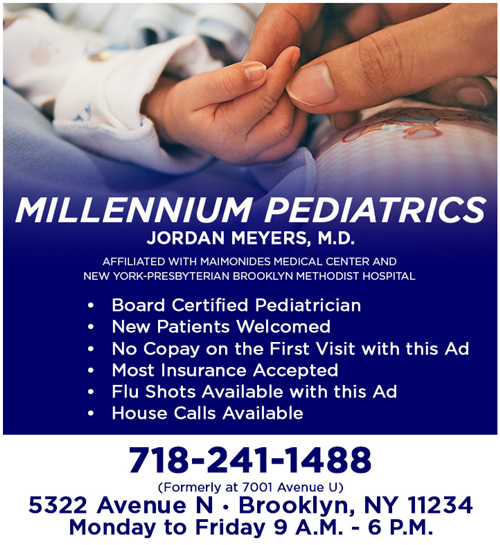Immunizations Protect Families from Diseases
By Dr. Jordan Meyers, M.D.
In recent news reports, a local businessman at an international airport developed a measles rash. This was caused by very short contact with a parent from India who was carrying a baby, and who was headed back to India. This adult had never been immunized against measles. This case emphasizes how easy it is to become infected. It is a dangerous disease and everyone should be immunized.
In addition, a mumps outbreak at Syracuse University is causing the U.S. Centers for Disease Control (CDC) to consider a third booster of MMR (measles, mumps, rubella). Currently, there are 22 confirmed cases of mumps at the school. Usually, there are about 100 cases a year in the U.S. Last year, more than 1,000 cases were reported.
Both of these examples indicate the importance of keeping up with the news and reports of the Advisory Committee on Immunization Practices, a panel of medical and health department experts who meet three times a year to review and recommend changes in immunological practices. This is then implemented by CDC, which may recommend a third booster of the MMR vaccine in the next few weeks.
Another recommendation is changing the guidelines for the human papillomavirus (HPV) vaccine to two injections rather than three. If a child receives the HPV vaccine before age 15, it is recommended to give two injections. If they are 15 or older, we continue with three doses.
In my office – Millennium Pediatrics at 5322 Avenue N – we only use the Gardasil 9-valent vaccines for girls and boys. The vaccine has an excellent safety record, and more than 170 million doses have been administered without serious safety concerns.
As of now, there have been 22 flu-related deaths in children. We continue to recommend the flu vaccine in shot form, not nasal spray, for our patients.
My office adheres to the recommendations made by the American Academy of Pediatrics and suggests you follow up with scheduling and vaccine safety by visiting www.healthychildren.org.

